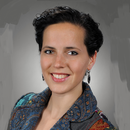The Hopp Children’s Cancer Center Heidelberg (KiTZ) is a joint institution of the German Cancer Research Center (DKFZ), Heidelberg University Hospital (UKHD) and the University of Heidelberg (Uni HD).
In an international comparison, Germany has so far been one of the laggards when it comes to early clinical trials and has so far been less attractive as a location for trials. This is particularly true for clinical trials in which new drugs and medical procedures for children are tested.
Clinical trials involving children are subject to particularly high bureaucratic hurdles in Germany. However, what is intended as protection can be detrimental to children with particularly serious diseases such as cancer, explains Olaf Witt, Director at KiTZ, Head of the Clinical Cooperation Unit Pediatric Oncology at DKFZ and Senior Consultant at Heidelberg University Hospital (UKHD): "Due to particularly lengthy approval and contract processes, clinical trials with new therapies for children and adolescents with cancer could often only be opened for a short time or not at all in Germany. In some cases, the start of trials was delayed by years compared to other European countries. Children with cancer don't have that time!"
The new Medical Research Act will significantly improve this situation, according to the pediatric oncologists at the Hopp Children's Cancer Center Heidelberg (KiTZ). For example, it will speed up the approval of clinical studies in which routine X-ray examinations are used. These previously had to go through months of approval processes. In addition, there are to be specialized ethics committees for studies involving children. The new law has initiated a further positive development in this area: In June of this year, the German Medical Association (BÄK) and the Working Group of Medical Ethics Committees (AKEK) decided that in future a single vote by an ethics committee should be sufficient for multi-center clinical trials. Previously, such studies could be evaluated by the ethics committees of all participating study centers, which led to considerable delays. "However, given the increasingly complex study designs, innovative treatment methods and small case numbers in paediatric oncology, the specialization of an ethics committee makes sense," says Witt.
The new regulation on the decentralized conduct of studies should also be a particular relief for families with children suffering from cancer. In future, the drugs can also be sent to the young study participants' homes under certain conditions.
Stefan Pfister, Director at KiTZ, Head of Department at DKFZ and pediatric oncologist at UKHD, who together with Olaf Witt also submitted a statement on the Medical Research Act to the Bundestag's Health Committee, also rates the draft positively. However, he also sees key points that have not been taken into account in the law: "This concerns issues such as artificial intelligence, data protection and animal welfare in medical research. There is currently no standardized evaluation process for AI applications in medicine. An overwhelming majority of patients would like to make their data available for research purposes, but there are also no regulations on how this can be done in an unbureaucratic manner. In this respect, the right to use one's own data should also be considered," says Pfister.
The pediatric oncologists concede that some issues cannot be resolved by the new law at a national level because they fall within the remit of the individual federal states. This applies, for example, to all "non-interventional" studies that do not involve new therapies, but instead evaluate existing data or test new diagnostic procedures (registry studies). Here too, transnational regulations for data protection need to be put in place.
Some international agreements on the protection of children also urgently need to be revised, emphasizes Olaf Witt: "Minors are subject to special protection in medical research, which is defined by certain international guidelines. These include, for example, the Declaration of Helsinki and the Clinical Trials Regulation in European legislation. However, these should not lead to children with life-threatening diseases such as cancer only having difficult and delayed access to innovations in medicine."




